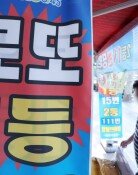Air Defense in the City - Are There Answers to Terrorism?
Air Defense in the City - Are There Answers to Terrorism?
Posted September. 13, 2001 09:05,
On the 12th the National Defense Committee of the National Assembly postponed the parliamentary investigation of the Joint Chiefs of Staff and convened a tentative meeting to listen to the military report concerning its alternatives to the US terror attacks. Today`s meeting was originally planned to proceed in private in accordance with the request made by the Joint Chiefs of Staff.
However, the meeting proceeded in accordance with the assembly members` suggestion that, ``it is better to publicly disclose our military`s defense strategy against terror attack if we are to assure the citizens of their safety.`` With the exception of the military`s secret case, the `military`s anti-terror strategy` report, the entire meeting was conducted in public. The assembly members stressed the importance of ``diverse anti-terror strategies that are comparable to strategies against major wars.`` They requested special attention be paid to establish firm air strike defense systems especially in places where main national institutions such as airport, Cheong Wa Dae, and government buildings, are densely grouped together.
Members of the Grand National Party (GNP) repeatedly asked the following question, ``Do we have any provision against planes entering a no-flying zone and blow itself up by crashing into its target?``
Assembly member Kang Sam-Jae claimed that, ``Now that what we thought to be virtual reality has become real, we must establish war strategies in order to meet the worst possible event.`` Assembly member Kang Chang-Sung expressed his concern that, ``Following the terror attack on mainland America, it is possible that America`s closest ally, Korea, will also be the target of attack.`` The chairman of the Joint Chiefs of Staff reported that, ``Korea through its fifty years of conflict with North Korea maintains an unusually competent air defense system in comparison with other countries. In particular since last year and a half, Korea has invested in several professional research personnel who have come up with more reliable strategies.``
However, chairman Cho added that, ``Inasmuch as what has happened has gone against common sense to catch off our guard, we will come up with complementary measures after reexamining all current strategies.``
Some assembly members of the ruling party feared the blockage of talks between
North and South, and North Korea and the US, and emphasized the importance of reducing mistrust by building up military trust.
Chang Young-Dal, an assembly member of the Democratic Party explained that, ``this incident has taught us how one can experience great disaster by enforcing one`s views based on power without resorting to any dialogue. It is of great importance that in our dialogue with North Korea with regard to our military issues, we should attempt several dialogical approaches in order to eliminate among us mistrust and misunderstanding, and thereby forestall in advance such tragic event.``
Members of both the ruling and the opposition party voiced a rare agreement on the need for the expansion of military power against terrorism, the promotion of anti-air attack detectors, and the strengthening the security provision of US troops stationed in Korea. They called the military for a fall-proof preparation against any terror attacks.
Lee Chol-Hi klimt@donga.com
Headline News
- Joint investigation headquarters asks Yoon to appear at the investigation office
- KDIC colonel: Cable ties and hoods to control NEC staff were prepared
- Results of real estate development diverged by accessibility to Gangnam
- New budget proposal reflecting Trump’s demand rejected
- Son Heung-min scores winning corner kick







